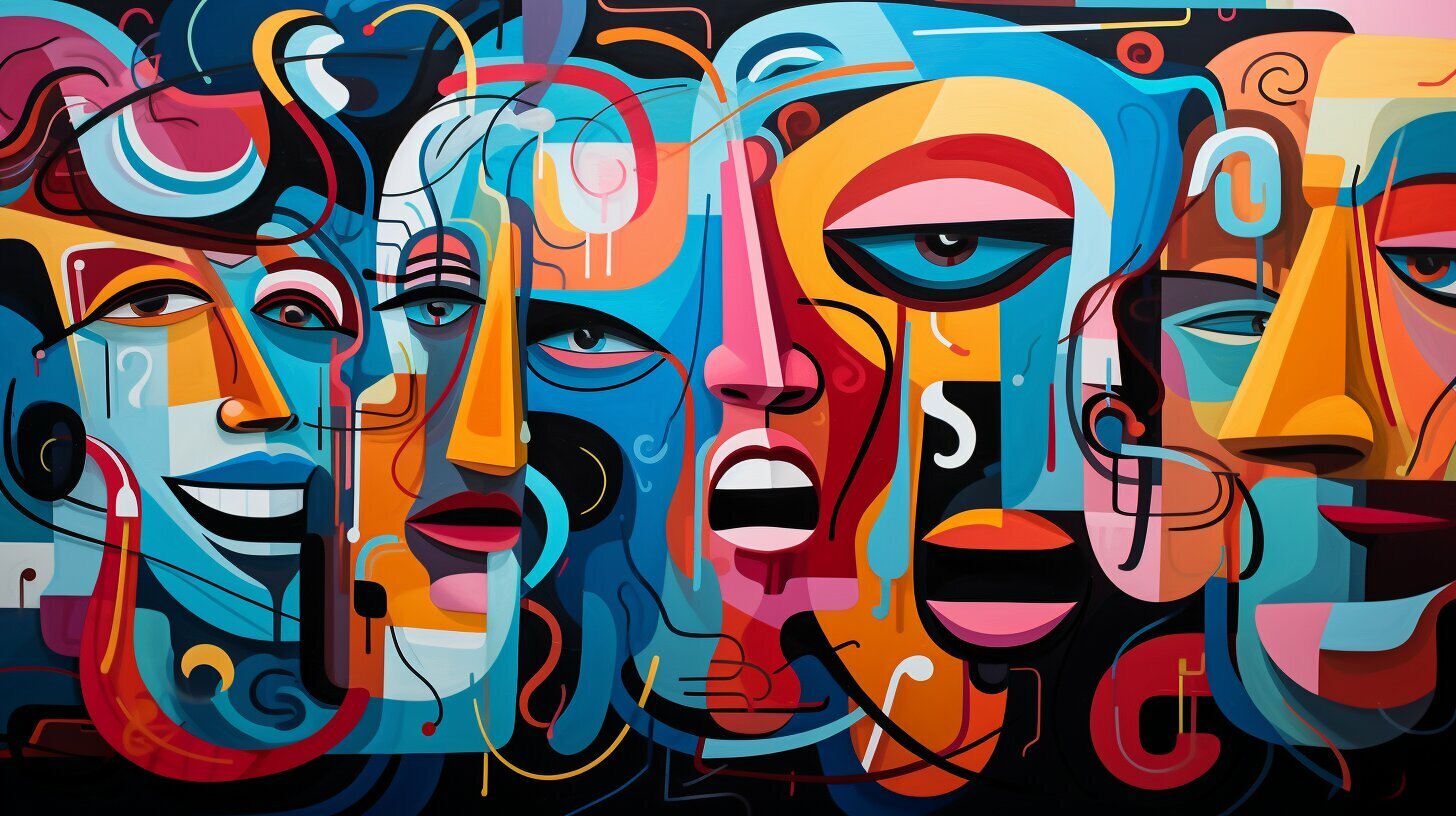Unpacking the Question: Why Do People Make Fun of Others?
Making fun of others can serve various purposes, ranging from creating laughter to expressing negative emotions. It is a behavior that can have both light-hearted and darker motives behind it. Understanding the psychology and social dynamics of mocking is crucial in order to navigate its effects on individuals and society as a whole.
Key Takeaways:
- Mocking others can be driven by a desire to assert dominance within a social group.
- Individuals may mock others as a way to boost their own self-esteem or deflect attention from their own insecurities.
- Mocking can be used to establish group norms and reinforce shared values.
- Constant ridicule can have detrimental effects on the self-esteem and mental health of those targeted.
- Promoting empathy, respect, and understanding can help combat mocking behavior and create a more inclusive society.
The Role of Group Dynamics
Group dynamics often play a significant role in encouraging or perpetuating teasing and mocking behaviors. When individuals belong to a particular social group, they may feel the need to assert dominance or conform to the group’s norms. This can manifest in the form of mocking others as a way to gain social status or maintain their position within the group hierarchy.
Teasing and mocking behavior within a group can have profound social consequences. It can create a culture of exclusion, where individuals who are targeted feel isolated and marginalized. Furthermore, the act of mocking can contribute to the normalization of such behavior within the group, perpetuating a cycle of negativity and harm.
To address the social consequences of making fun of others, it is important to foster an environment of respect and empathy. This can be achieved by promoting open communication, encouraging individuals to express their thoughts and feelings, and actively listening to others’ experiences. By creating a safe and inclusive space, individuals are more likely to feel supported and valued, reducing the prevalence of mocking behavior.
The Impact of Group Dynamics on Mocking Behavior
In the context of group dynamics, teasing and mocking behavior can serve as a means to establish and reinforce social norms. By engaging in humor and teasing, group members can form a collective identity and strengthen their sense of belonging. However, it is crucial to be mindful of the potential harm that mocking behavior can cause to targeted individuals.
| Impact of Mocking | Social Consequences |
|---|---|
| Deterioration of self-esteem | Individuals who are constantly mocked may experience a decline in their self-esteem, leading to feelings of inadequacy and self-doubt. |
| Mental health implications | Mocking can have detrimental effects on an individual’s mental health, contributing to anxiety, depression, and other psychological disorders. |
| Isolation and exclusion | Mocking can create a sense of isolation and exclusion for those who are targeted, causing them to withdraw from social interactions and relationships. |
Understanding the impact of mocking on individuals is crucial in fostering a more compassionate society. By promoting empathy, respect, and understanding, we can work towards creating a safer and more inclusive environment for everyone.
Self-Esteem Issues and Insecurity
Mocking others can sometimes be a manifestation of one’s own insecurities and a means to deflect attention away from personal vulnerabilities. When individuals feel insecure about themselves, they may resort to making fun of others as a defense mechanism. By targeting someone else, they can momentarily shift focus away from their own insecurities and boost their own self-esteem. This behavior stems from a need to feel superior or validated at the expense of others.
It is important to note that this kind of behavior is not healthy or productive. In fact, it can be harmful both to the person being mocked and to the individual engaging in the mockery. The person being targeted may experience negative psychological effects, such as lower self-esteem, increased anxiety, and a diminished sense of self-worth. On the other hand, the individual who is making fun of others may perpetuate a cycle of negativity, perpetuating their own feelings of insecurity and perpetuating harmful social dynamics.
To address this issue, it is crucial to foster understanding and empathy. By encouraging individuals to reflect on their own insecurities, they can develop a greater sense of self-awareness and recognize the harm their actions may cause. By promoting empathy, we can create an environment that values kindness, respect, and inclusivity. It is through understanding and supporting one another that we can break free from the cycle of mockery and create a more compassionate society.
| Effects of ridicule: | Lower self-esteem | Increased anxiety | Diminished sense of self-worth |
|---|---|---|---|
| Reasons behind teasing: | Insecurity | Desire to feel superior | Deflecting attention from personal vulnerabilities |
| Analyzing the motivations for mockery: | Insecurity | Desire for validation | Need to boost self-esteem |
By recognizing the motivations behind mockery, we can begin to address the underlying issues and work towards a more inclusive and respectful society. It is important to understand that everyone has their own insecurities and vulnerabilities, and by treating each other with kindness and empathy, we can break free from the harmful cycle of making fun of others.
Establishing Group Norms and Values
Mocking others can be a way for a group to reinforce its social norms and solidify a sense of shared values. Within a social setting, humor and teasing can serve as powerful bonding mechanisms, creating a collective identity. By engaging in playful mockery, individuals reaffirm their membership within the group and establish a sense of belonging. This can strengthen social connections and create a supportive environment.
However, it is essential to strike a balance between light-hearted banter and hurtful mockery. While teasing can contribute to group cohesion, it is crucial to be mindful of the impact it can have on individuals. It is important to recognize that what may be harmless teasing to one person can be deeply hurtful to another. To maintain a healthy social dynamic, it is crucial to consider the feelings and boundaries of those involved.
As individuals, we must also be aware of the values and norms that underpin our own teasing behavior. Reflecting on our motivations and understanding the reasons behind our actions can help foster more respectful interactions. By promoting empathy, we can create an environment that encourages inclusivity and supports the well-being of all group members.
| Benefits of Establishing Group Norms and Values through Mocking | Risks and Considerations |
|---|---|
|
|
Creating a supportive social environment involves recognizing the potential risks and consequences of mocking behavior. Emphasizing empathy, understanding, and respect can help mitigate these risks and foster a culture of inclusivity. By embracing diverse perspectives and celebrating individual differences, we can establish a foundation of shared values that uplifts and supports everyone in the group.
The Impact of Mocking on Individuals
Continuous mocking can have profound negative effects on the targeted individuals, ranging from lowered self-esteem to increased vulnerability to mental health issues. When someone is constantly made fun of, it can chip away at their confidence and sense of self-worth. The repeated ridicule can leave emotional scars that may persist long after the mocking has ceased.
In addition to impacting self-esteem, continuous mocking can also make individuals more susceptible to mental health issues. The constant criticism and belittlement can contribute to feelings of anxiety, depression, and even suicidal ideation. It creates a toxic environment that can erode the individual’s overall well-being.
Moreover, the effects of ridicule extend beyond the individual being targeted. Mocking behavior can foster a negative and hostile atmosphere within a social group or community. It can create division and exclude those who are different or perceived as vulnerable. This not only harms the individuals being mocked but also deteriorates the overall social fabric and sense of unity.
It is crucial to recognize the impact of mocking and actively work towards promoting empathy and respect. By fostering a culture of understanding and acceptance, we can create an environment where individuals feel safe and valued. By doing so, we can combat the harmful effects of mocking and build a society that is more inclusive and compassionate.
The Importance of Empathy and Respect
Cultivating empathy and respect is crucial in creating a more compassionate and inclusive environment where mocking is less prevalent. Understanding teasing behavior and analyzing the motivations for mockery can help us develop a deeper appreciation for the impact it has on individuals and social dynamics. By promoting empathy, we can encourage a shift towards more respectful interactions and reduce the prevalence of mocking behavior.
When we approach others with empathy, we can better understand their experiences and emotions, which allows for more compassionate interactions. Empathy helps us put ourselves in someone else’s shoes, allowing us to see the potential harm that mocking can cause. By considering the feelings of others, we can choose our words and actions more carefully, and avoid engaging in behavior that may be hurtful or demeaning.
“Empathy is seeing with the eyes of another, listening with the ears of another, and feeling with the heart of another.” – Alfred Adler
Respect is equally important in fostering a positive and inclusive environment. It involves treating others with dignity and recognizing their worth. By respecting others’ boundaries, opinions, and experiences, we create a space where everyone feels valued and accepted. Respect also means acknowledging the consequences of our actions and being accountable for them. When we respect others, we are less likely to engage in mocking behavior and more inclined to uplift and support one another.
The Power of Empathy and Respect
By prioritizing empathy and respect in our interactions, we can create a ripple effect that extends beyond individual relationships. When empathy and respect are valued and practiced within a community or social group, it becomes easier to challenge mocking behavior and establish new norms. This shift ultimately leads to a more inclusive and compassionate society where individuals feel safe to express themselves without fear of ridicule.
Summary
Understanding the underlying motives for mockery, such as insecurity or a desire for social dominance, allows us to approach the issue with greater empathy and respect. By cultivating these qualities, we can foster a more compassionate and inclusive environment where mocking behavior is less prevalent. It is essential that we recognize the impact of our words and actions, and strive to build a society that values empathy, understanding, and respect for all.
| Key Points |
|---|
| Cultivating empathy and respect is crucial in reducing the prevalence of mocking behavior. |
| Empathy helps us understand the potential harm caused by mocking, leading to more compassionate interactions. |
| Respect involves treating others with dignity and recognizing their worth, fostering a positive and inclusive environment. |
| Prioritizing empathy and respect leads to a ripple effect that challenges mocking behavior and establishes new norms. |
Coping Mechanisms and Strategies
Developing coping mechanisms and seeking support can help individuals navigate the negative effects of mocking behavior. When faced with constant ridicule, it is essential to prioritize self-care and build resilience. Engaging in activities that bring joy and boost self-esteem can help counteract the impact of teasing. Whether it’s pursuing a hobby, spending time with loved ones, or practicing self-reflection, finding healthy outlets for stress and negativity can promote emotional well-being.
Seeking support from friends, family, or professionals is also crucial. Talking about the experience with trusted individuals can provide validation and perspective, allowing the individual to process their emotions. Additionally, seeking guidance from a therapist or counselor can provide valuable tools and strategies for addressing the psychological effects of mocking. They can help develop healthy coping mechanisms, challenge negative thought patterns, and provide a safe space to express feelings of hurt or anger.
It is also important to set boundaries and assert oneself when confronted with mocking behavior. Communicating assertively and calmly expressing the impact of the mocking can help educate others on the consequences of their actions. By asserting personal boundaries, individuals can establish a sense of self-worth and create a space that respects their dignity and emotional well-being. Remember that everyone deserves to be treated with kindness and respect, and it is essential to advocate for oneself.
| Coping Mechanisms and Strategies | Benefits |
|---|---|
| Engaging in self-care activities | Boosts self-esteem and promotes emotional well-being |
| Seeking support from friends, family, or professionals | Provides validation, perspective, and tools for coping |
| Setting boundaries and asserting oneself | Establishes self-worth and promotes respect |
| Developing resilience | Strengthens the ability to navigate adversity |
Remember, navigating the negative effects of mocking behavior is a journey. It takes time and effort to develop coping mechanisms and find the support that works best for each individual. By prioritizing self-care, seeking support, and asserting personal boundaries, it is possible to navigate through the impact of teasing and emerge stronger and more resilient.
Conclusion
Understanding the psychology and social dynamics behind mocking behavior can help foster empathy, respect, and create a more inclusive society. Making fun of others can serve different purposes, from lighthearted humor to darker intentions. It is important to consider the motives behind our words and actions, and to be mindful of the potential impact they may have on others.
When we mock someone, it is essential to gauge their comfort level and ensure that it is done in a way that is respectful and not hurtful. While some individuals may be able to handle being made fun of, others may find it deeply distressing and damaging to their self-esteem.
Mocking behavior can stem from personal insecurities or a desire to feel superior. It can also be used to reinforce social norms and establish a sense of shared values within a group. However, it is crucial to recognize the potential harm it can cause and strive to create a culture of empathy and understanding.
By encouraging empathy, understanding, and respecting others’ experiences, we can shift perceptions and promote more inclusive and compassionate interactions. Together, we can create a society where making fun of others becomes less prevalent and where everyone feels valued and respected.
FAQ
Why do people make fun of others?
People make fun of others for various reasons. It can be to create levity and humor, reinforce social norms, establish a sense of shared values within a group, or even to feel superior. However, it is important to consider the potential harm and impact it can have on individuals.
When is it appropriate to make fun of someone?
The appropriateness of making fun of someone depends on the context and the individual’s ability to handle it. Some people may be more resilient and able to take it as light-hearted humor, while others may find it hurtful. It is crucial to be mindful of others’ feelings and to avoid crossing the line into bullying or causing harm.
Why do people mock others out of insecurity?
Insecurity can drive people to mock others as a way to deflect attention from their own insecurities or to boost their self-esteem. By making fun of others, they may feel temporarily superior or validated. However, it is important to address the underlying insecurities rather than perpetuating this cycle of negative behavior.
Can mocking reinforce social norms?
Yes, mocking can serve as a tool to reinforce social norms and establish a sense of shared values within a group. By using humor and teasing, individuals can create a collective identity and strengthen social bonds. However, it is essential to ensure that this behavior does not become exclusionary or harmful.
What impact does mocking have on individuals?
Mocking can have a significant impact on individuals who are targeted. Constant ridicule can lead to a decline in self-esteem, mental health issues, and overall well-being. It is crucial to address and combat mocking behavior to create a more supportive and inclusive environment.
How can empathy and respect help combat mocking behavior?
Encouraging empathy and respect is key to reducing the prevalence of mocking behavior. By understanding and respecting others’ experiences, we can shift our perceptions and create a more inclusive and compassionate society. Promoting empathy can lead to kinder interactions and a greater sense of belonging.
What coping mechanisms can individuals use when faced with mocking behavior?
When faced with mocking behavior, individuals can employ coping mechanisms such as self-care, building resilience, and seeking support. It is important to prioritize one’s well-being, develop inner strength, and surround oneself with a support system that can provide understanding and guidance.
- Discovering Why Do Women Wear Lipstick: A Deeper Look - 19/12/2023
- Why Do Golfers Only Wear One Glove? - 16/12/2023
- Why Don’t Hobbits Wear Shoes? - 14/12/2023
Hi, I’m Rhiannon, the lead author behind The News Wire. As a passionate journalist, I strive to bring you the latest news and updates from all over the world. With a keen eye for detail and a dedication to unbiased reporting, I aim to deliver well-researched and informative articles that keep you informed and engaged. From breaking news to in-depth analyses, I cover a wide range of topics with the aim of keeping you in the loop. Join me on The News Wire as we explore the dynamic and ever-changing landscapes of global events, uncovering the stories that matter most.






